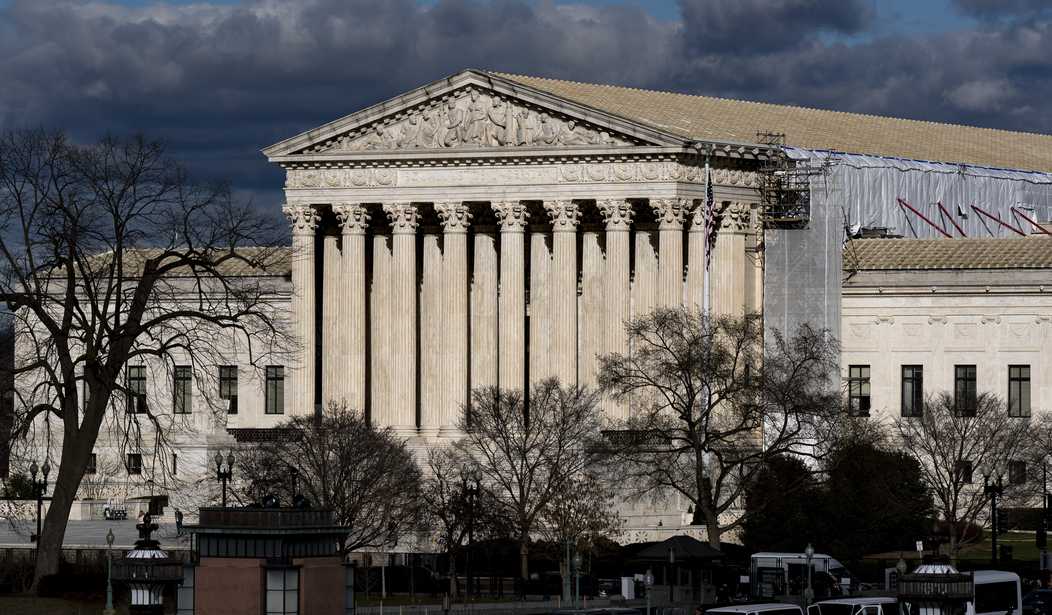On Thursday, the U.S. Supreme Court heard oral argument in the case of Trump v. CASA, Inc. Though the case arises out of President Donald Trump's January executive order on birthright citizenship and the 14th Amendment, Thursday's oral argument had very little to do with the hotly contested substantive issue of whether the children of illegal aliens born on U.S. soil must automatically be conferred American citizenship. Instead, the argument mostly focused on a procedural legal issue that is just as important as the underlying substantive issue itself: whether lower-court federal judges possess the legitimate power to issue 'nationwide' injunctions to bring laws or executive orders to a halt throughout the entire republic.
There is a very straightforward answer to this question: No, they don't. And it is imperative for American constitutionalism and republican self-governance that the justices clearly affirm that.
Let's start with the text. Article III of the Constitution establishes the "judicial Power" of the United States, which the University of Chicago Law School professor William Baude argued in a 2008 law review article is "the power to issue binding judgments and to settle legal disputes within the court's jurisdiction." If the federal courts can bind certain parties, the crucial question is thus: Who? In other words, what is the legitimate "jurisdiction" of who is strictly bound by a federal court issuing an injunction?
In our system of governance, it is only the named parties to a given lawsuit that can truly be bound by court's judgment. As the brilliant then-Stanford Law School professor Jonathan Mitchell put it in an influential 2018 law review article, an "injunction is nothing more than a judicially imposed non-enforcement policy" that "forbids the named defendants to enforce the statute" -- or executive order -- "while the court's order remains in place." Fundamentally, as Samuel L. Bray observed in another significant 2017 law review article, a federal court's injunction only binds "the defendant's conduct ... with respect to the plaintiff." If other courts in other districts face a similar case, those judges might consider their peers' decision and follow it, but they are not strictly required to do so. (For truly nationwide legal issues, the proper recourse is filing a class-action lawsuit, as authorized by Rule 23 of the Federal Rules of Civil Procedure.)
Recommended
One does not need to be a legal scholar to understand this commonsense point.
Americans are a self-governing people; it is We the People, according to the Constitution's Preamble, who are sovereign in the United States. And while the judiciary serves as an important check on congressional or executive overreach in specific "Cases" or "Controversies" that come before it (as Article III puts it), there is no broader ability to decide the "law of the land" by "striking down" a law or order for all of the American people.
As Abraham Lincoln warned in his first inaugural address: "The candid citizen must confess that if the policy of the Government upon vital questions affecting the whole people is to be irrevocably fixed by" the judiciary, "the instant they are made in ordinary litigation between parties in personal actions, the people will have ceased to be their own rulers."
Simply put, the patriots of 1776 did not rebel against the tyranny of King George III only to subject themselves, many generations later, to the black-robed tyranny of today. They fought for the ability to live freely and self-govern, and to thereby control their own fates and destinies. Judicial supremacy and the concomitant misguided practice of "nationwide" injunctions necessarily deprive a free people of the ability to do exactly that.
It is true that Chief Justice John Marshall's landmark 1803 ruling in Marbury v. Madison established that "it is emphatically the province and duty of the judicial department to say what the law is." But it is also true, as Marshall noted in the less frequently quoted sentence directly following that assertion: "Those who apply the rule to particular cases, must of necessity expound and interpret that rule." Note the all-important qualifier of "apply the rule to particular cases." Marbury is often erroneously invoked to support judicial supremacy, but the modest case- and litigant-specific judicial review that Marshall established has nothing to do with the modern judicial supremacy and "nationwide" injunctions that proliferate today. It is that fallacious conception of judicial supremacy that was argued Thursday at the Supreme Court.
Chief Justice John Roberts, one of the swing votes in CASA, is not always known for judicial modesty. On the contrary, in clumsily attempting to defend his institution's integrity, he has at times indulged in unvarnished judicial supremacist rhetoric and presided over an unjustifiable arrogation of power to what Alexander Hamilton, in Federalist No. 78, referred to as the "least dangerous" of the three branches.
Suppose Roberts and his fellow centrist justices -- namely, Brett Kavanaugh and Amy Coney Barrett -- have any sense of prudence. In that case, they must join their more stalwart originalist colleagues in holding that "nationwide" injunctions offend the very core of our constitutional order. Such a ruling would not merely be a win for Trump -- it would be a win for the Constitution and for self-governance itself.

























Join the conversation as a VIP Member